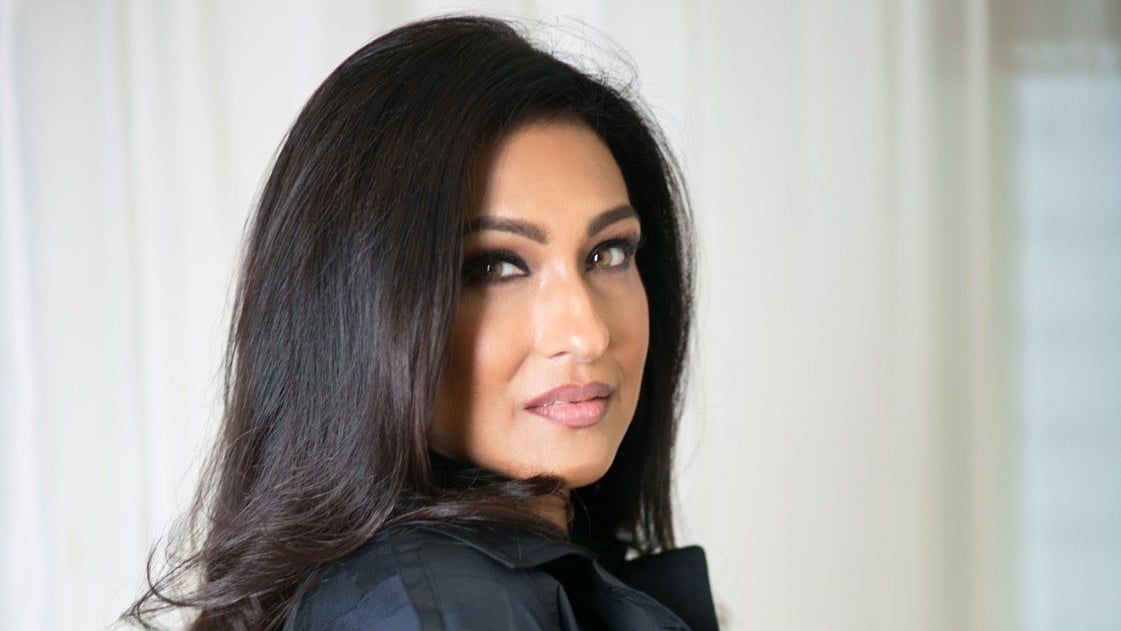Bengali married to a Sindhi, Ishita Moitra was the best person to co-write the story, screenplay and dialogue of Karan Johar’s Rocky Aur Rani Kii Prem Kahaani (RARKPK). She met Neeraj Udhwani at YRF studio when they were co-writing Ashima Chibber’s 2013 comedy Mere Dad Ki Maruti. “We both drove Marutis and our cars were the same colour. I told Neeraj it was ‘carma’. Terrible pun!” she laughs. They have been married seven-and-a-half years and she admits that while it was easy convincing his parents and hers, Ishita’s didu (grandmother) believed Punjabis and Sindhis were the same because she couldn’t point out Sindh on the map of India to her. “But she was okay once she knew Neeraj ate fish.”
They have a year-and-a-half daughter and ensure she celebrates both Durga puja and Diwali with equal gusto. “We have told the grandparents to speak to her in Bengali and Sindhi so she learns both languages,” shares Ishita, whose father while in the army was posted in Amritsar where she learnt to read, write and speak Punjabi fluently. “I still do because I have many Punjabi friends,” she shares.
Today, the dialogues are the USPs of RARKPK and Ishita admits it was fun writing for Ranveer Singh’s Rocky because of the humour and Alia Bhatt’s Rani for the drama. “While being respectful and caring, Rani is calling out what she sees in Rocky’s family while he is reacting to the way he is perceived, treated and judged by her family. Since the characters were poles apart, and Karan was very clear about the issues he wanted to address within the construct of a mainstream Bollywood film so it would reach a larger audience, it was easy to write,” says Ishita who started her career with Kambakhtt Ishkk and is quick to acknowledge that she was fourth and junior most writer on this big budget commercial film.
“But the experience of working with a big production house and top-ranking stars helped me understand the craft and landed me my first real writing gig with YRF TV, Khotey Sikkey, which was followed by Mere Dad Ki Maruti,” she informs. Neeraj and she have since collaborated on a 2020 Netflix film, Maska, which he directed, and also wrote the story and screenplay for, while Ishita penned the dialogues. “Since we know the best and worst of each other, collaborating is easy. But too much is also not good for a relationship. Different experiences bring freshness and newness to the writing,” she reasons.
Over the last few years, with projects as different as Test Case, Noor, Four More Shots, Please! and Rocky Aur Rani Kii Prem Kahaani, Ishita believes she has found her voice, and now, no matter what the story, genre or platform, she is able to bring certain gender politics into her work that aligns with her personal values. “There is more ownership now. As one grows and evolves, one’s perspective changes. I don’t know if I could have written RARKPK this way before I was married,” she admits.
Ishita is happy to share credit with her director-producer, Karan Johar, who wanted Rani’s father to be a Kathak dancer and thought of the sasur-jamai Dola re performance. “There’s also the Kanwal-Jamini track which without any reference to ageism or any nare-baazi, shows a kiss between two elderly people. You may be 70, but you can still have desires, right?” she reasons.
Talking of desires, Four More Shots Please! is perhaps the first Indian show, in the early days of OTT, to make sex “normal and normalize it”. Ishita admits this was possible because the producers, Rangita Pritish Nandy and Ishita Nandy, three directors (Anu Menon, Nupur Asthana and Joyeeta Patpatia), writers (Devika Bhagat and her), one of the cinematographers (Neha Parti Matiyani), two of the three editors (Antara Lahiri and Jabeen Merchant) and the actresses, were all women and could bring their female gaze to the subject. “The show draws from the concept of sisterhood. It’s a fact that when you meet your best friend after three months, you don’t waste time talking about the weather. Over two glasses of wine, you bare your soul. Women are not afraid to be vulnerable and ask for advice, even from strangers in the ladies’s room or the CISF cop in the airport,” says Ishita.
She is enthused by the audience reaction. “During season one, many enjoyed the show with guilty pleasure. But after the Emmy nomination, they no longer felt guilty. They watched the second and third seasons simply with pleasure,” she chuckles.
Ishita has now created a series for Dharma Productions, Call Me Bae, featuring Ananya Panday, which will stream on Amazon Prime. “I’ve also written a film for Dharma starring Vicky Kaushal, Triptii Dimri and Ammay Wrik that will release next year. I can’t talk about the other projects yet. As I grow and evolve, I want my work to grow and evolve too,” she signs off.













